Grantee: Andy Berglund, PhD
Funded: 11/1/2023 - 10/31/2024
Grant Type: Restricted Research Grant
Disease(s): Myotonic dystrophy (DM)
The New York State Myotonic Dystrophy Center (NYS-DMC) is a growing hub of research and clinical experts focused on the leading cause of adult-onset muscular dystrophy – myotonic dystrophy (DM). This proposal by the University at Albany’s RNA Institute NYS-DMC team will support research and training efforts focused on building the next generation of DM therapeutics and researchers. Research efforts for this proposal will focus on better understanding the mechanism of action and therapeutic potential of novel small molecules that target the toxic repeat RNA that underlying DM. The training efforts will focus on support for a Young DM Investigator meeting in New York (October 3-6, 2023), which will train the next generation of DM researchers to strategically drive their research, careers, and by extension, the DM field, on a path towards finding a cure for this devastating disease. These parallel research and training efforts will build a foundation of future therapeutics and the researchers to guide them along the clinical trial path towards finding a cure for this devastating disorder.
Digital Object Identifier (DOI)
Grantee: Andy Berglund, PhD
Grant type: Restricted Research Grant
Award total: $97,749.78
Institution: Research Foundation of SUNY - University at Albany
Country: USA
Grantee: Christine Marques, Ph.D.
Funded: 9/1/2023 - 8/31/2026
Grant Type: Development Grant
Disease(s): ALS (amyotrophic lateral sclerosis)
The STING (stimulator of interferon genes) pathway is one of the major DNA damage detection pathways that trigger downstream inflammatory signals. It has been implicated in neurodegenerative diseases, including Amyotrophic Lateral Sclerosis (ALS). Our data suggest increased activation of the STING pathway in both vulnerable neurons and traditional inflammatory mediator microglia in ALS. However, the specific effects of STING signaling on these cell types are not yet understood. This project aims to resolve the involvement of the STING pathway in ALS by focusing on the contributions of STING signaling activation in these two cell types, using iPSC models and postmortem tissue. We have developed robust neuronal and microglia differentiation strategies, which will be applied across different ALS and control lines, to determine the level of STING activation and downstream pathways in each cell type and line. By co-culturing neurons and microglia, we will examine the impact of their intercellular interactions on STING pathway activation and on the transcriptional profile of each cell type. An unbiased bioinformatic analysis of postmortem tissue and ALS datasets from iPSC models, along with validation in postmortem human tissue and CRISPR-mediated gene editing approach, will enable us to identify candidate cell-type-specific genes and pathways involved in non-cell autonomous interactions between neurons and microglia in ALS.
Digital Object Identifier (DOI)
Grantee: Christine Marques, Ph.D.
Grant type: Development Grant
Award total: $210,000.00
Institution: Massachusetts General Hospital (Mass General)
Country: United States
Grantee: Preeti Kumari, Ph.D
Funded: 9/1/2023 - 8/31/2026
Grant Type: Development Grant
Disease(s): Myotonic dystrophy (DM)
The process that the body uses to regulate the use of energy is called metabolism, while the intermediate compounds produced during this process are known as metabolites. In myotonic dystrophy type 1 (DM1), progressive muscle weakness is associated with whole-body insulin resistance and elevation of several metabolites in the blood. However, the molecular pathways responsible for elevation of metabolites in DM1 and their relationship to muscle weakness are uncertain. Extracellular vesicles (EVs) are tiny bubble-like structures that are released from all cell types. EVs carry gene expression information and metabolites as a form of communication between cells. The EV metabolite content, or "metabolome," in DM1 is unknown. In this project we will 1) compare the metabolite composition in urine EVs from DM1 and unaffected individuals, 2) determine a relationship between the gene products and metabolites found in EVs, and 3) monitor EV metabolites over time in relation to clinical measures of muscle function. If successful, this project would promote major advancement in the understanding of the DM1 disease mechanism that could accelerate therapeutic development and expand non-invasive biomarker options. The insights that we gain have the potential to benefit all DM1 patients and may extend more generally to DM type 2 and other muscular dystrophies.
Digital Object Identifier (DOI)
Grantee: Preeti Kumari, Ph.D
Grant type: Development Grant
Award total: $206,189.00
Institution: Massachusetts General Hospital (Mass General)
Country: United States
Grantee: Alyson Fiorillo, Ph.D
Funded: 11/1/2023 - 10/31/2026
Grant Type: Research Grant
Disease(s): Duchenne muscular dystrophy (DMD)
Duchenne Muscular Dystrophy (DMD) is a devastating pediatric neuromuscular disorder which affects 1:3500 boys worldwide. This genetic disorder is driven by mutations in the dystrophin gene, leading to total loss of dystrophin protein in muscle. Without dystrophin, DMD muscle experiences damage and inflammation, eventually resulting in replacement of muscle with fat and fibrous tissue. Thus, there is an urgent need to understand and treat inflammation in DMD. microRNAs are short RNAs that serve as volume dials for different proteins; it is well documented that they help control inflammation. Our lab has described two microRNAs called inflamma-miRs that are found at very high levels in the muscle of DMD patients and DMD model mice. When we purposely cause inflammation in muscle cells, we see an increase in inflamma-miRs, suggesting that inflammation regulates inflamma-miR content. Interestingly, inflamma-miRs resemble viral RNA, and because of this, we found that they can activate an immune receptor called TLR7, whose normal role is to trigger inflammation in response to viral RNA. TLR7 should only be found in immune cells, however DMD muscle “mis-expresses” TLR7 thus “priming” it to trigger an immune response when it senses inflamma-miRs in muscle. In this grant proposal we will determine if 1) reducing inflamma-miRs or 2) reducing levels of TLR7 can benefit inflammation and muscle function in DMD model mice.
Digital Object Identifier (DOI)
Grantee: Alyson Fiorillo, Ph.D
Grant type: Research Grant
Award total: $298,910.00
Institution: Virginia Commonwealth University
Country: United States
Grantee: Andrea Armani, Ph.D.
Funded: 9/1/2023 - 8/31/2026
Grant Type: Development Grant
Disease(s): Acid maltase deficiency (AMD, Pompe disease)
Pompe disease (PD), is the rare genetic disorder caused by an inactivating mutation in the gene coding for acid maltase, the enzyme that usually breaks down glycogen to glucose inside lysosomes. Due to the impairment in the function of these organelles, PD has been the first described lysosomal storage disease (LSD), affecting 1 in 40,000 live births. In the infantile form, lysosomal glycogen accumulation is causing a severe cardiomyopathy that can be successfully reversed by enzyme replacing therapy (ERT); however, both in infantile forms and late onset ones (LPOD), a severe, ERT resistant and progressive skeletal muscle wasting and weakness is forcing patients to wheelchairs and mechanical ventilation. Unfortunately, to date, respiratory failure is still the main cause of death in LOPD patients, even if in treatment. In the past years scientific breakthrough paved the basis for the development of next-generation ERT; however, no clear advancements have been made in understanding the misregulated signals in the organelle where the pathology originates due to technological limitations in the characterization of lysosomes. With this project, I propose to fill the gap setting up a ground-breaking methodology for unraveling these hidden signals at the onset of Pompe pathogenesis, with the expectation to find novel potential targets exploitable for boosting the current traditional enzyme replacing therapy.
Digital Object Identifier (DOI)
Grantee: Andrea Armani, Ph.D.
Grant type: Development Grant
Award total: $210,000.00
Institution: University of Zurich (Universität Zürich, UZH)
Country: Switzerland
Grantee: James Berry, M.D.
Funded: 9/1/2023 - 8/31/2025
Grant Type: Research Grant
Disease(s): ALS (amyotrophic lateral sclerosis)

ALS trials depend on quantifiable measures of function to detect if an experimental therapy is working. Current ALS outcomes, like the ALS Functional Rating Scale – Revised (ALSFRS-R) and vital capacity, are collected in clinic and thus are recorded infrequently and yield small trial datasets. Advances in machine learning and artificial intelligence are revolutionizing medicine but require large datasets. Mobile apps and wearable sensors can collect large datasets about daily function while participants do very little except wear a device or answer questions on a mobile app. The ActiMyo device is a wearable sensor for the ankle and wrist that collects information regarding movement of the limbs. Algorithms calculate activity and walking metrics – specifically the 95th percentile stride velocity (SV95C), which regulators have accepted as a trial endpoint in muscular dystrophy. The Beiwe smartphone app obtains activity data and delivers questionnaires to evaluate the effect of ALS on people’s daily life. We will conduct a 12-month study of 30 participants with ALS wearing the ActiMyo device and using the Beiwe smartphone app to compare the SV95C and other digital outcome measures to traditional in-clinic ALS trial outcome measures, including the ALSFRS-R. Our goal is to collect more data, more rapidly and more easily to hasten ALS drug development. Specifically, we will confirm the utility of the SV95C and other digital features of movement as trial endpoints in ALS.
Digital Object Identifier (DOI)
Grantee: James Berry, M.D.
Grant type: Research Grant
Award total: $200,000.00
Institution: Massachusetts General Hospital (Mass General)
Country: United States
Grantee: Auinash Kalsotra PhD
Funded: 9/1/2023 - 8/31/2026
Grant Type: Research Grant
Disease(s): Myotonic dystrophy (DM)

Myotonic Dystrophy type 1 (DM1) is a multi-systemic neuromuscular disorder affecting 1 in 3000 people. Much of the focus in DM1 research has been on the effects within the muscle and neurological tissues. However, DM1 patients also suffer from increased levels of various metabolic and liver-specific symptoms, such as non-alcoholic fatty liver disease, metabolic syndrome, and liver damage. Additionally, DM1 patients are abnormally sensitive to a wide range of analgesics and muscle relaxants, resulting in prolonged anesthesia recovery, heightened pulmonary dysfunction, and in some cases, death. So far, these symptoms have been attributed to the disruption of neurological and muscular functions associated with DM1 but could also be explained by the malfunctioning of the liver, a major site for nutrient and drug metabolism. This proposal aims to understand the precise effects of DM1 on the liver; determine to what extent DM1 diseased livers exhibit susceptibility to risks from lifestyle choices such as diet and drugs; and investigate how the interference with MBNL activity causes metabolic and drug clearance pathologies which can jeopardize the health of DM1 patients and complicate their treatment.
Digital Object Identifier (DOI)
Grantee: Auinash Kalsotra PhD
Grant type: Research Grant
Award total: $300,000.00
Institution: The Board of Trustees of the University of Illinois Urbana-Champaign
Country: United States
Grantee: Jeffrey Chamberlain, Ph.D.
Funded: 7/1/2023 - 6/30/2024
Grant Type: Restricted Research Grant
Disease(s): Duchenne muscular dystrophy (DMD)
Gene therapy for DMD is a promising method to treat the cause of the disorder, a lack of functional dystrophin production. Currently, the only known method to deliver genes to muscles all over the body is with delivery vectors known as AAV. However, AAV can carry only very small hence, hence the development of micro-dystrophins, that are 1/3rd the size of the full, normal protein. This small size combined with the somewhat inefficient delivery potential of current AAVs has limited efficacy due to gene therapy., Here we describe a methods to deliver dystrophin proteins at least double the size of micro-dystrophins, and combine their use with recently described myotropic AAVs that can be sued at lower doses and are more efficient than current AAVs. We propose to conduct further proof of principle testing that will provide data on whether this new double-sized system should be moved into pre-clinical testing in support of a future clinical trial.
Grantee: Jeffrey Chamberlain, Ph.D.
Grant type: Restricted Research Grant
Award total: $337,170.55
Institution: University of Washington
Country: United States
Grantee: Jonathan Glass, MD
Funded: 4/1/2023 - 3/31/2024
Grant Type: Restricted Research Grant
Disease(s): ALS (amyotrophic lateral sclerosis)

There is an enormous need for a better understanding of the clinical, demographic, and genetic features that underlie the phenotypic variability of ALS. Indeed, it may be more accurate to define ALS as a “syndrome” defined by the commonality of clinical features and progression. The syndrome of ALS may encompass a number disease mechanisms that will require different approaches for therapeutic intervention, and one could hypothesize that our failures in clinical trials for ALS are due to the inclusion of multiple disease types, some of which are not responsive to the experimental drug under investigation. Thus, we need to better understand whether multiple mechanisms of ALS truly exist, and to do that we need to better define the disease by documenting phenotypes along with genetic, serologic, and physiological features of disease. This improved categorization of disease will result in the definition of specific disease features that will allow for clinical trials targeting specific disease mechanisms. The CRiALS project, supported by MDA funding, has generated a world-class clinical database and biobank for use locally, nationally, and internationally for discovery research focused on better defining the mechanisms of ALS, which will lead to drug targets and directed therapeutics.
Grantee: Jonathan Glass, MD
Grant type: Restricted Research Grant
Award total: $154,797.00
Institution: Emory University
Country: United States
Grantee: Barry Byrne M.D., Ph.D.
Funded: 2/1/2023 - 1/31/2024
Grant Type: Clinical Research Grant
Disease(s): Duchenne muscular dystrophy (DMD)

Study objectives:
Assessment of the safety and efficacy of intravenous administration of VYVGART in a two-arm study to lower anti-adeno associated virus (AAV) antibody titers in boys with Duchenne muscular dystrophy (DMD) with both pre-existing antibody and previous exposure to AAV in another therapeutic study.
Primary: Explore the ability of VYVGART? to lower anti-AAV capsid antibody pre and post exposure to AAV.
Secondary: Determine the safety and tolerability of VYVGART? in boys with Duchenne muscular dystrophy.
Digital Object Identifier (DOI)
Grantee: Barry Byrne M.D., Ph.D.
Grant type: Clinical Research Grant
Award total: $100,000.00
Institution: University of Florida
Country: United States
Grantee: Rita Sattler, Ph.D.
Funded: 9/1/2023 - 8/31/2026
Grant Type: Research Grant
Disease(s): ALS (amyotrophic lateral sclerosis)
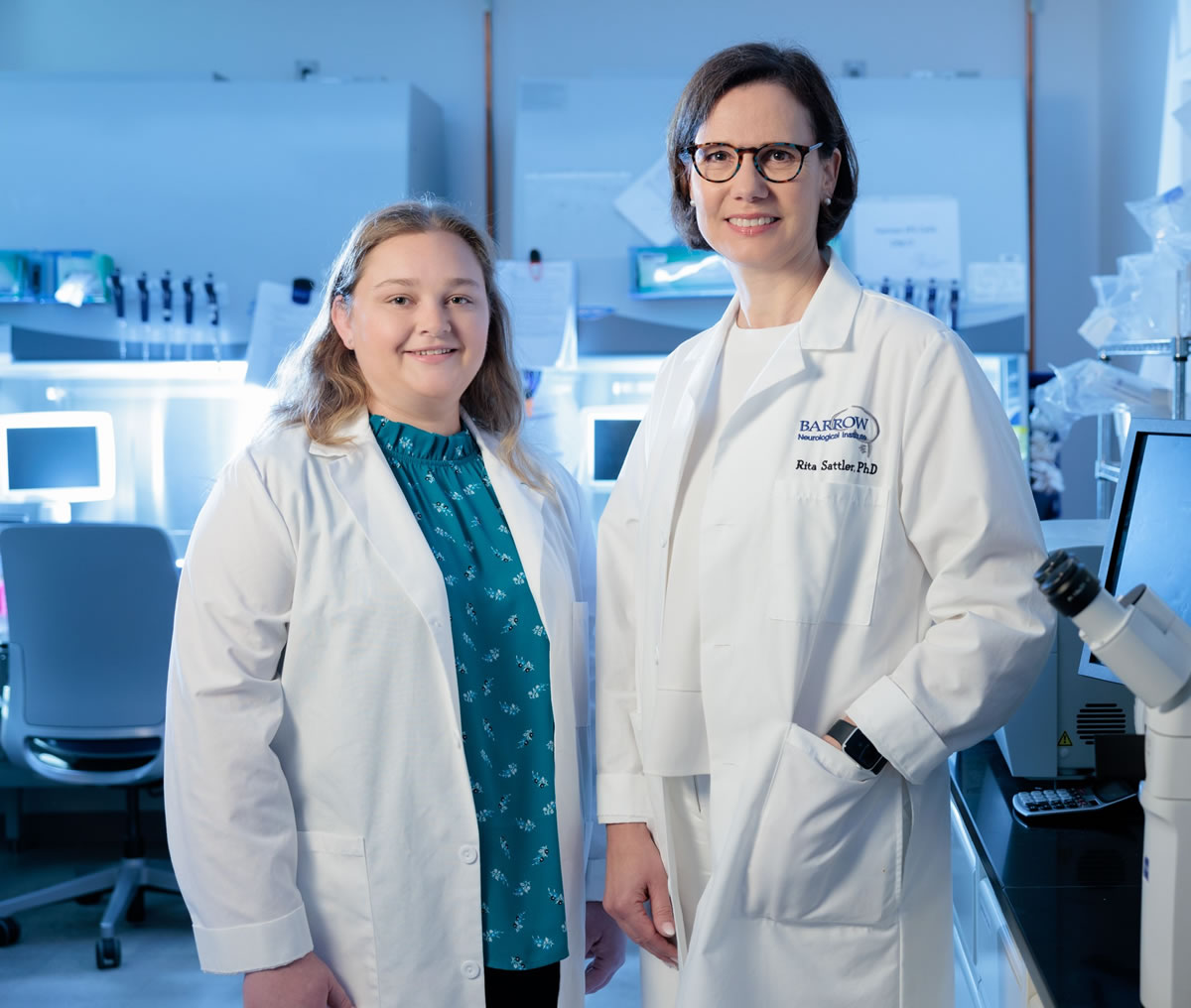
Amyotrophic lateral sclerosis (ALS) and frontotemporal dementia (FTD) are now recognized as a spectrum disease with approximately 50% of ALS patients exhibiting cognitive impairments and about 15% of FTD patients developing motor deficits. Most studies aimed at elucidating mechanisms of cognitive impairments in this spectrum disease focused on disease mechanisms of neuronal cells in the brain, while non-neuronal cells, so called glial cells, have been largely ignored and overlooked. The development of induced pluripotent stem cell (iPSC) technologies has facilitated the generation of disease models for ALS/FTD. This technology allows us to create a ‘brain in a dish’, which consists of patient-derived iPSCs converted into brain-like cells. To better understand how patients with C9orf72 ALS/FTD, the most prevalent genetic mutation leading to this disease spectrum, develop cognitive impairments and most importantly, how we can provide specific treatments for these patients, we propose to focus our studies on glial cell-to-cell communication and regulation using iPSCs derived from C9orf72 ALS-FTD patients. In specific, we aim to study how astrocytes and microglia, two distinct glial cell types in the brain, co-regulate each other using molecular and cellular techniques. We will also test how this regulation impacts neuronal function, but most importantly, how this glia-glia co-regulation goes rouge during disease and contributes to neuronal dysfunction in C9orf72 ALS/FTD.
Digital Object Identifier (DOI)
Grantee: Rita Sattler, Ph.D.
Grant type: Research Grant
Award total: $300,000.00
Institution: Dignity Health dba St. Joseph's Hospital & Medical Center, Phoenix, AZ
Country: United States
Grantee: Kevin Wright, Ph.D.
Funded: 9/1/2023 - 8/31/2026
Grant Type: Research Grant
Disease(s): Congenital muscular dystrophies (CMD)

Dystroglycanopathy is a form of congenital muscular dystrophy that occurs due to defective function of the protein Dystroglycan. Most cases of dystroglycanopathy arise from mutations in one of 19 genes that are required for the synthesis of sugar chains present on Dystroglycan. These sugar chains are required for Dystroglycan's function, and mediate its binding to other proteins. In addition to muscular dystrophy, patients with dystroglycanopathy can also present with a wide range of neurological symptoms, depending on the nature of the specific genetic mutation. On the severe end, this can manifest as widespread brain abnormalities that can be easily detected by MRI, whereas patients with milder dystroglycanopathy may present with cognitive deficits even when brain scans are normal. Dystroglycanopathy patients also have an elevated risk of seizures. Recent studies using mouse models of dystroglycanopathy have identified a new role for Dystroglycan in regulating the formation and function of inhibitory synapses in the brain. Similar to human patients, these mouse models are more susceptible to seizures, and this scales with the severity of the loss of Dystroglycan function. We propose to use whole brain activity mapping to determine how these seizures progress in two of these mouse models, and test whether gene therapy approaches can correct synaptic defects and reduce seizure susceptibility.
Digital Object Identifier (DOI)
Grantee: Kevin Wright, Ph.D.
Grant type: Research Grant
Award total: $299,974.00
Institution: Oregon Health & Science University - OHSU
Country: United States
Grantee: Lori Wallrath, Ph.D.
Funded: 9/1/2023 - 8/31/2026
Grant Type: Research Grant
Disease(s): Emery-Dreifuss muscular dystrophy (EDMD)
Mutations in the LMNA gene cause 16 different diseases including three that affect muscle, Emery-Dreifuss, Limb-Girdle, and congenital muscular dystrophy. Currently, there are no cures for these diseases. When individuals are diagnosed with a mutation in the LMNA gene it is challenging to predict what type of muscle disease they will get, the disease severity, and the long-term prognosis. In part, this is because mutations in genes other than LMNA called modifier gene influence how the disease will affect an individual, yet no modifier genes have been identified to date. We have used genome sequencing of closely related individuals with the same LMNA mutation that have different disease phenotypes to identify candidate modifier genes. We propose to test these candidate modifiers using our fruit fly models of LMNA-associated muscular dystrophy. Fruit flies share 75% of human disease genes and have muscle biology like that of humans. We can perform genetics using fruit flies that is not possible with humans. The identification of these modifier genes will aid in the diagnosis, prognosis, and treatment of individuals with LMNA-muscular dystrophy.
Digital Object Identifier (DOI)
Grantee: Lori Wallrath, Ph.D.
Grant type: Research Grant
Award total: $296,044.00
Institution: The University of Iowa
Country: United States
Grantee: Raghavendra Singh, Ph.D
Funded: 9/1/2023 - 8/31/2026
Grant Type: Development Grant
Disease(s): Mitochondrial myopathies
Mitochondrial ATP production and clearance of intracellular calcium is critical for cellular homeostasis. Dysregulation of mitochondrial Ca2+ homeostasis is implicated in neurodegeneration and muscular atrophy. Ca2+ entry in to the mitochondrial matrix via mitochondrial Ca2+ uniporter (mtCU) complex, is regulated by Ca2+-sensitive regulator, MICU1 either homodimerized or heterodimerized with MICU2 or MICU3. Human loss of function mutation of MICU1 has been linked to skeletal muscle myopathy, motoric impairment, fatigue, and learning difficulties. In mice, we established that neuronal MICU1 deficiency is associated with motoric and learning disabilities and motor neuron loss, and that MICU1 loss in skeletal muscle (SM) leads to muscular atrophy. However, the causation of muscular atrophy and motor neuron degeneration by MICU1 loss and mitochondrial Ca2+ dysregulation is still not clear. Therefore, we will study the role of MICU1 in presynaptic Ca2+ homeostasis and in the regulation of synaptic vesicle release in MICU1KO primary neurons, and test whether altered synaptic transmission at neuromuscular junction leads to muscular atrophy in MICU1 deficient mice. Also, we will investigate the mechanism(s) underlying muscular atrophy and the degeneration of upper and lower motor neurons in absence of MICU1 using chronic constriction nerve injury, and neuron or skeletal muscle-specific MICU1 KO mouse models.
Grantee: Raghavendra Singh, Ph.D
Grant type: Development Grant
Award total: $210,000.00
Institution: Thomas Jefferson University
Country: United States
Grantee: Jeffrey Rothstein, M.D., Ph.D.
Funded: 9/1/2023 - 8/31/2026
Grant Type: Research Grant
Disease(s): ALS (amyotrophic lateral sclerosis)
Amyotrophic Lateral Sclerosis (ALS) is a fatal neurodegenerative disease. The majority of cases are sporadic in nature. Defects in processes that maintains communication between nuclear and cytoplasmic compartments of the cell (nucleocytoplasmic transport, NCT) have emerged as a cause of ALS and other neurodegenerative diseases. The nuclear pore complex (NPC), is made up of individual proteins (Nups) and regulates NCT. We identified a subset of Nups that are altered as an early event in disease pathogenesis by using patient-derived induced pluripotent stem cells and validated these results in patient autopsy tissue. We discovered the mechanism for this early cellular event, the abnormal nuclear localization of the nuclear pore surveillance protein CHMP7. Using antisense oligonucleotide (ASO) treatment, we can repair this problem and its consequences. The current program will advance the CHMP7 ASO through the necessary steps to eventually make it rapidly ready for human ALS trials.
Grantee: Jeffrey Rothstein, M.D., Ph.D.
Grant type: Research Grant
Award total: $300,000.00
Institution: Johns Hopkins University School of Medicine
Country: United States
Funded: 9/1/2023 - 8/31/2026
Grant Type: Research Grant
Disease(s): Mitochondrial myopathies
The central problem of this application is to test the efficacy of tetracyclines, among them doxycycline, to treat mitochondrial myopathies. There are no cures for these diseases and treatments are more often palliative and include vitamins and supplements, nutritional manipulations, and exercise. Mitochondrial myopathies result from mutations in mitochondrial or nuclear DNA that cause failures in energetic and metabolic function. We have recently developed chemical screen platforms to discover drugs that rescue pathologies caused by human mitochondrial disease mutations. Importantly, we have identified that certain antibiotics, such as doxycycline, that are FDA approved and used in the clinic, are effective in cellular and mouse pre-clinical models of mitochondrial diseases. However, whether these antibiotics are effective in mitochondrial myopathies, and how they work are unknown. In this application (1) we will investigate the efficacy of doxycycline in a mouse pre-clinical model of mitochondrial myopathy, and (2) we will use CRISPR modifying genetic screens to discover how these antibiotics work. The final goal is to provide scientific based support for the use of these antibiotics, or newly identified targets, to treat mitochondrial myopathies.
Grantee: Pere Puigserver
Grant type: Research Grant
Award total: $300,000.00
Institution: Dana-Farber Cancer Institute
Country: United States
Grantee: Diana Piol, Ph.D.
Funded: 9/1/2023 - 8/31/2026
Grant Type: Development Grant
Disease(s): ALS (amyotrophic lateral sclerosis)
Amyotrophic lateral sclerosis (ALS) is a devastating disease which is characterized by the loss of motor neurons of the motor cortex and spinal cord. Most of the ALS cases are unpredictable, but several genetic causes have been found in the population accounting for mutations in genes encoding SOD1, TDP-43, FUS and C9ORF72 proteins. All the different ALS forms have in common denervation of the neuromuscular junctions (NMJs), the contacts between the axons and the muscle, which are critical for our most basic functions including breathing and walking. The mechanisms through which this structure is non-functional and eventually lost during disease are currently unknown. Recently, we demonstrated that in animals modeling inherited forms of disease the production of proteins along the axons, called axonal local translation, is impaired and this correlates with aberrant composition of the axonal and synaptic translation machinery and ribosomes, all of which are responsible for protein production. This project will unveil the local translation events in a healthy NMJ and will investigate at the same time the contribution of aberrant local translation to NMJ demise driven by ALS-causing mutations in FUS and other forms of ALS. This work ultimately will uncover the local mechanisms leading to disease pathogenesis for the identification of synaptic targets whose translation can be modulated to rescue disease phenotypes, with the promise to translate these findings to the clinic.
Grantee: Diana Piol, Ph.D.
Grant type: Development Grant
Award total: $210,000.00
Institution: Vlaams Instituut voor Biotechnologie (Flanders Institute for Biotechnology, VIB)
Country: Belgium
Grantee: Eran Perlson, Ph.D
Funded: 9/1/2023 - 8/31/2026
Grant Type: Research Grant
Disease(s): ALS (amyotrophic lateral sclerosis)
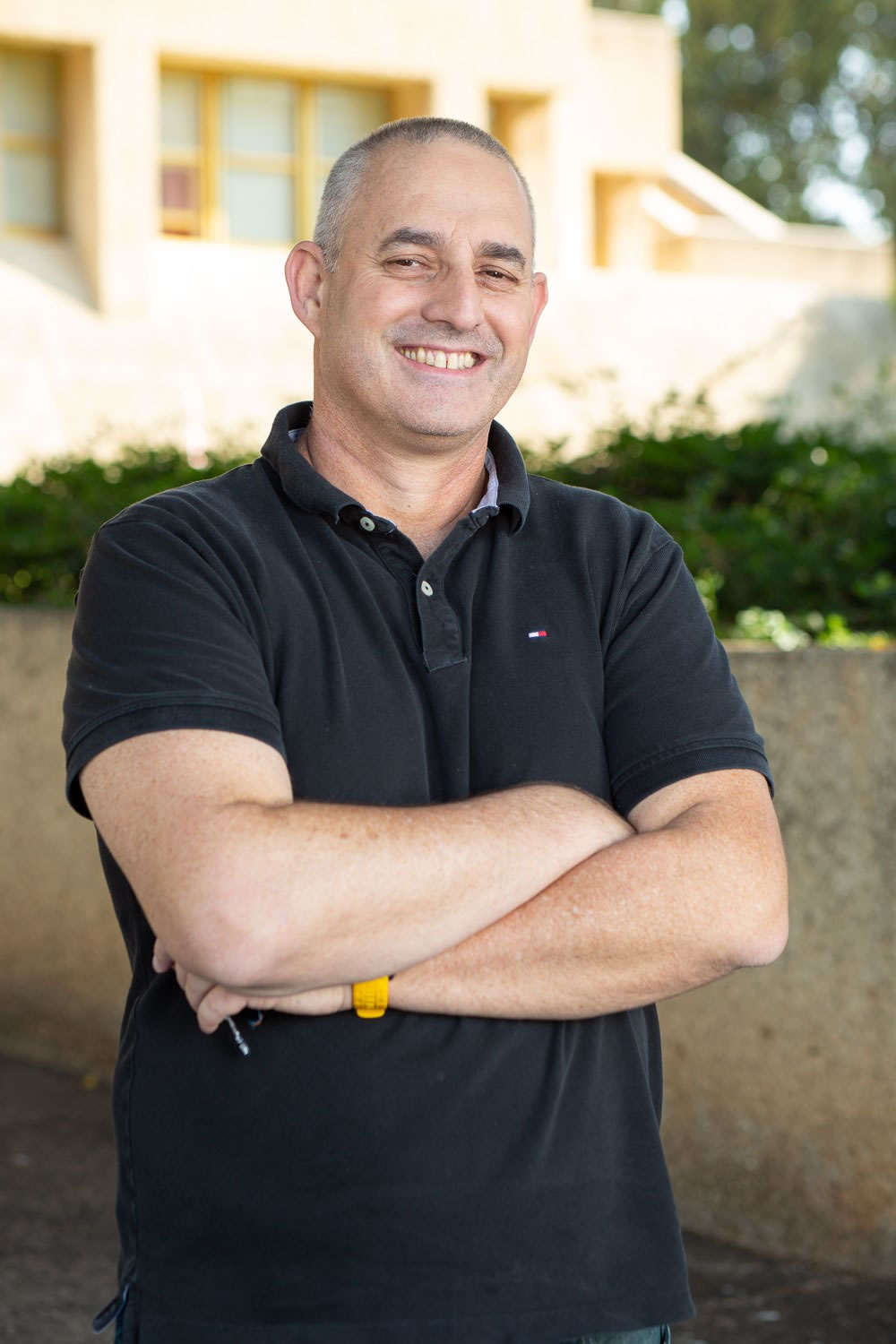
Amyotrophic lateral sclerosis (ALS) is a progressive condition affecting the nerves supplying muscles (motor neurons), resulting in weakness, paralysis, and death. ALS is surprisingly common, occurring in ~1:400 individuals, with no effective treatment options existing. One of the first pathological processes occurring in ALS is the disruption of the meeting point of the neuron and the muscle— the neuromuscular junction (NMJ). Based on previous data from our laboratory, we propose that a small RNA molecule called miR126-5P can regulate several biochemical pathways that are essential to maintain the NMJ. This novel target is usually highly expressed in motor neurons and muscles, protecting against toxic signals. In ALS models, it is decreased. We suggest that elevation of miR126 levels will restore motor neuron axons, muscle contraction and prevent paralysis in ALS. To test this hypothesis, we will over-express miR126 both in ALS mice and unique patients NMJ cellular models and track neuron function and survival. We will also evaluate the specific effects of miR126 on ALS-related gene expression. If successful, these studies will not only deepen our understanding of ALS; they will also greatly facilitate the development of RNA-based therapies for ALS and related conditions.
Grantee: Eran Perlson, Ph.D
Grant type: Research Grant
Award total: $299,000.00
Institution: Tel Aviv University
Country: Israel
Grantee: Devesh Pant, Ph.D
Funded: 9/1/2023 - 8/31/2026
Grant Type: Development Grant
Disease(s): ALS (amyotrophic lateral sclerosis)
Amyotrophic lateral sclerosis (ALS) is a rapidly progressive and fatal neurodegenerative disorder characterized by selective loss of upper and lower motor neurons resulting in paralysis and finally death within 2 to 5 years after symptom onset. There is no effective drug to cure or even slow disease progression. Motor neurons rely on proper communication between the cell body and neurites through cargo trafficking. Deficits in such communication are one of the early events of disease pathogenesis. This is further supported by the recent identification of mutations in the KIF5A gene, which is a major motor protein for cargo transport, in ALS patients. This proposal will determine the molecular mechanisms underlying ALS caused by KIF5A mutants using human motor neurons and novel mouse models. Results from this study will help understand what causes this dreadful disease and identify new therapeutic approaches.
Grantee: Devesh Pant, Ph.D
Grant type: Development Grant
Award total: $210,000.00
Institution: Emory University
Country: United States
Grantee: Curtis Nutter, Ph.D.
Funded: 9/1/2023 - 8/31/2026
Grant Type: Development Grant
Disease(s): Myotonic dystrophy (DM)
Myotonic dystrophy 1 (DM1) is a genetic disease caused by huge repetitions of the small DNA code C-T-G. These large stretches of DNA repeats are copied into a toxic RNA that captures specific proteins and thus prevents these proteins from performing their normal important functions. This loss of function in brain and muscle cells results in varying symptoms, which can start anytime during pregnancy until late adulthood. In the most severe cases of DM1, over a thousand CTG repeats are inherited resulting in congenital DM (CDM), which is characterized by altered muscle and brain development. Importantly, there are no treatments available to alleviate the symptoms of any form of DM. The goals of this proposal are to investigate how a novel, key brain tissue the choroid plexus may contribute to impaired brain development and other DM symptoms affecting the brain. Furthermore, we plan to generate and test new and more accurate mouse models of the disease that can help in developing drugs and treatments for DM.
Grantee: Curtis Nutter, Ph.D.
Grant type: Development Grant
Award total: $209,280.00
Institution: University of Florida
Country: United States
Grantee: Umrao Monani, Ph.D.
Funded: 9/1/2023 - 8/31/2026
Grant Type: Research Grant
Disease(s): Spinal muscular atrophy (SMA)
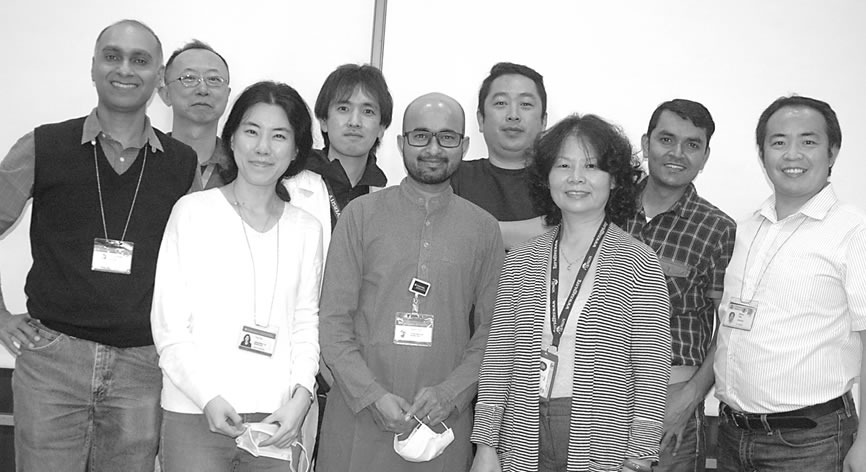
Spinal muscular atrophy (SMA) is a neuromuscular disorder thought of as arising primarily from the deficiency of the SMN protein in motor neurons. Accordingly, current treatments focus on restoring the protein to these cells or the central nervous system. However, recent data suggests that protein deficiency in skeletal muscle also contributes to disease. This proposal investigates the manner in which SMN ensures healthy muscle, examining the cellular and molecular consequences of low protein in the tissue. In particular, experiments center on the role of SMN in muscle stem cells. If successful, the project will cast important light on the role of muscle in SMA and how SMN functions in this tissue to maintain its health. This could lead to new and improved treatments for this most devastating of pediatric diseases.
Grantee: Umrao Monani, Ph.D.
Grant type: Research Grant
Award total: $299,999.25
Institution: Columbia University Medical Center
Country: United States
Grantee: Alexia Kagiava PhD
Funded: 10/1/2023 - 9/30/2026
Grant Type: Research Grant
Disease(s): Charcot-Marie-Tooth disease (CMT)
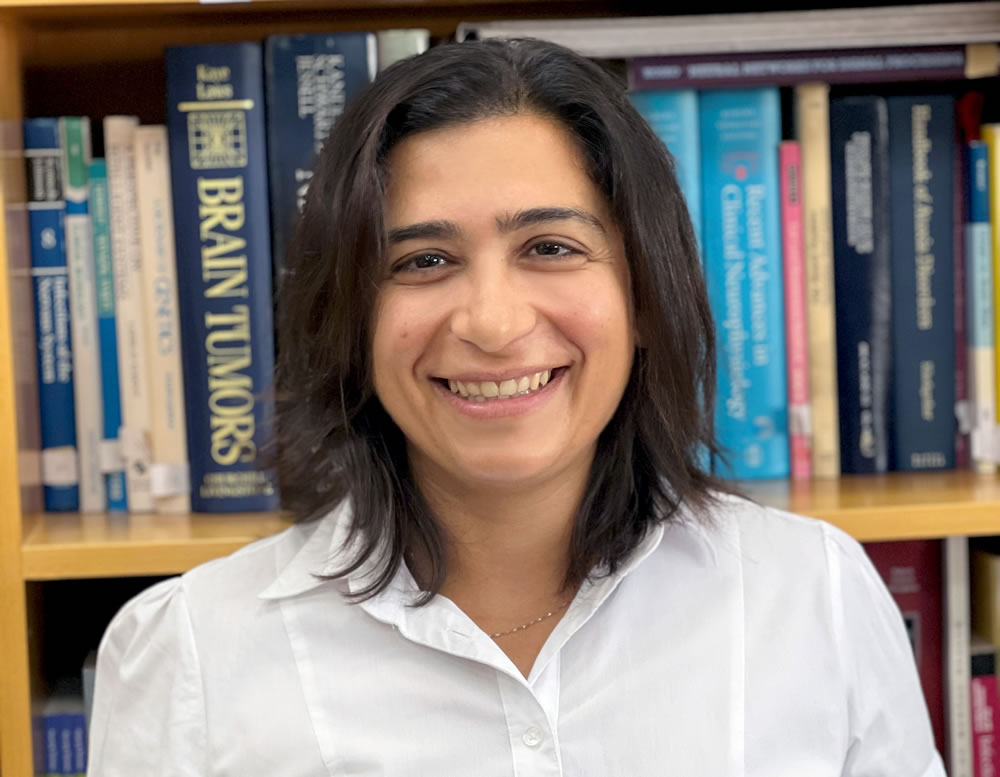
(Co-funded with the Charcot-Marie-Tooth Association)
X-linked Charcot-Marie Tooth Disease (CMT1X) is a common inherited neuropathy, characterized by progressive muscle atrophy, weakness and sensory loss in the limbs. CMT1X is caused by mutations affecting connexin32 (Cx32), a protein that is responsible for the formation of gap junction channels in the myelin sheath playing an important role in nerve function and integrity. We have already developed an effective gene therapy approach for treating CMT1X by delivering the gene encoding Cx32 by intrathecal injection to mice lacking the Cx32 gene using an AAV9 vector. The use of this vector resulted in widespread and long-lasting expression leading to pathological and functional improvement. Although AAV9 proved to be efficient, potential long-term toxicity and lack of cell specificity may limit clinical translation. In order to develop a safer and potentially more targeted approach we propose to design a novel aptamer-conjugated nanoparticle carrying the gene expressing Cx32 that would enable gene entry specifically to Schwann cells. We will then check its therapeutic benefit in a model of CMT1X neuropathy. This targeted nanoparticle approach may result in more targeted biodistribution and efficient gene expression providing a safer and more translatable novel approach for gene therapy to treat not only CMT1X but also other demyelinating neuropathies caused by gene defects in Schwann cells.
Grantee: Alexia Kagiava PhD
Grant type: Research Grant
Award total: $149,997.00
Institution: The Cyprus Foundation for Muscular Dystrophy Research
Country: Cyprus
Grantee: Marshall Hogarth, Ph.D.
Funded: 9/1/2023 - 8/31/2026
Grant Type: Research Grant
Disease(s): Limb-girdle muscular dystrophies (LGMD)
Gradual replacement of functional muscle tissue with fatty infiltrates is a major driver of disease onset and progression in LGMD2B. We have identified the cells which cause this phenomenon and are now seeking methods to suppress their differentiation into adipocytes as a therapy for LGMG2B patients. In healthy muscle, there are physiological mechanisms that prevent the formation of lipid deposits after damage, but these appear to be lost in LGMD2B as the disease progresses and the muscle is replaced by fat. This proposal will unravel the causes of this phenomenon, and test methods to correct it which could be rapidly developed into therapies for patients.
Digital Object Identifier (DOI)
Grantee: Marshall Hogarth, Ph.D.
Grant type: Research Grant
Award total: $299,973.00
Institution: Children's Research Institute (CNMC)
Country: United States
Grantee: Emanuela Gussoni, Ph.D
Funded: 9/1/2023 - 8/31/2026
Grant Type: Research Grant
Disease(s): Giant axonal neuropathy (GAN)
Our published work has shown that loss of CD82 in dystrophic muscle lead to a worsened disease. We have generate mice where CD82 expression can be induced and have crossed these mice to dystrophic mice. Preliminary work has shown improved physiology in dystrophic mice overexpressing CD82. The proposed project will focus on understanding what leads to these positive changes. This work might discover new pathways that can be regulated to preserve muscle mass and maintain myofiber integrity.
Grantee: Emanuela Gussoni, Ph.D
Grant type: Research Grant
Award total: $299,930.00
Institution: Boston Children's Hospital
Country: United States
Grantee: Kate Eichinger, Ph.D
Funded: 9/1/2023 - 8/31/2026
Grant Type: Research Grant
Disease(s): Myotonic dystrophy (DM)
Myotonic dystrophy type 1 (DM1) is a multi-systemic, progressive, neuromuscular condition that impacts strength and therefore, functional abilities. Individuals also experience symptoms of fatigue, daytime sleepiness, apathy and decreased motivation. Individuals with DM1 are often inactive and these sedentary behaviors can result in further loss of strength and function. Engaging in physical activity, including exercise, can improve strength and function in individuals with DM1, however; individuals with DM1 report motivation as a barrier to participation in these activities. There are cognitive and behavioral strategies that can be used to overcome barriers and facilitate exercise related health behavior change and increase physical activity. Health-related apps that offer exercise guidance and encouragement are becoming more popular as an effective way of facilitating individuals to exercise in their own environment and at times that are convenient to them. The goal of this project is to develop and optimize a remotely delivered intervention geared towards promoting exercise related health behavior change. This project will utilize a mobile app to deliver individualized educational and behavioral strategies to promote health behavior change and increase physical activity and exercise in individuals with DM1. Physical activity and exercise are essential to maximize functional abilities and to improve overall health and wellness of those living with this condition.
Grantee: Kate Eichinger, Ph.D
Grant type: Research Grant
Award total: $299,525.00
Institution: University of Rochester
Country: United States
Grantee: Matthew Disney, Ph.D.
Funded: 9/1/2023 - 8/31/2026
Grant Type: Research Grant
Disease(s): Myotonic dystrophy (DM)
Microsatellite disorders are a class of >40 diseases caused when DNA building blocks, or nucleotides, are repeated too many times in a gene, also known as repeat expansions. Herein, we have proposed a comprehensive program to target the root cause of the microsatellite disorder myotonic dystrophy type 2 (DM2). The major cause of toxicity and symptoms occurs when the gene that causes DM2 is transcribed into a biomolecule known as RNA. Interestingly, during this transcription process, the RNA repeat expansion adopts a 3-dimensional structure that looks like a bobby pin, or a hairpin. The bumps in the bobby pin are called loops, and these loops are unique to each RNA. This new RNA fold, not present in the healthy RNA, is toxic, gaining an aberrant function that causes disease. Over more than a decade, the Disney Laboratory has designed drug-like compounds that bind and deactivate RNA repeat expansion disorders in patient-derived cells and mouse models. Indeed, we have developed highly potent inhibitors of toxicity caused by the DM2 RNA as well as other repeat expansionsusing various innovative approaches. Here, we have proposed a comprehensive program to develop drugs that potently and specifically deactivate the toxic DM2 RNA as a therapeutic strategy, an unmet, urgent medical need for this neuromuscular disorder, which currently lack effective treatments.
Grantee: Matthew Disney, Ph.D.
Grant type: Research Grant
Award total: $300,000.00
Institution: University of Florida
Country: United States
Grantee: Malavika Raman, Ph.D
Funded: 9/1/2023 - 8/31/2026
Grant Type: Research Grant
Disease(s): ALS (amyotrophic lateral sclerosis)

ALS is a devastating neuromuscular disorder for which there is no current cure. Mutation in a number of genes are known to cause ALS, one of which is valosin containing protein (VCP). VCP is an important enzyme that regulates the destruction of many proteins within the cell and as such, its mutation perturbs many different cellular pathways. Most studies related to VCP mutation have been performed in cell lines not directly impacted in human disease. These two aspects have hindered our ability to understand how VCP mutations cause ALS. Our group has developed motor neurons and skeletal myocytes that have VCP mutations seen in individuals with ALS using induced pluripotent stem cells. We will investigate how VCP mutation impacts these two cell types. These studies will lay the foundation for our understanding of how VCP mutations cause the pathophysiology observed in ALS.
Digital Object Identifier (DOI)
Grantee: Malavika Raman, Ph.D
Grant type: Research Grant
Award total: $299,864.00
Institution: Trustees of Tufts College, Boston,MA
Country: United States
Grantee: Andreas Patsalos, Ph.D.
Funded: 9/1/2023 - 8/31/2026
Grant Type: Development Grant
Disease(s): Duchenne muscular dystrophy (DMD)
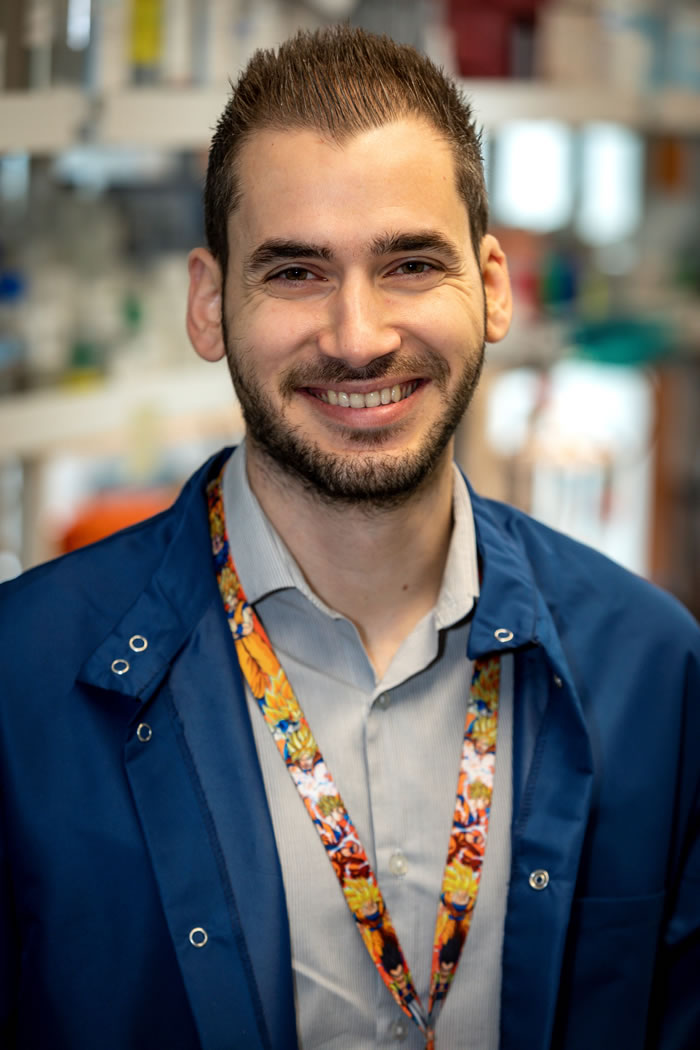
Duchenne Muscular Dystrophy (DMD) is a serious and deadly disease that primarily affects children. It is a degenerative disease that leads to the loss of muscle tissue, which is replaced by fibrosis and fat, resulting in significant mobility impairments. There is currently no cure for DMD, but there are drug and gene therapy efforts to convert the disease to a milder form. One major challenge is finding effective treatments that can reduce inflammation without suppressing the immune system and prevent or reverse muscle loss. One novel approach we have been studying is to modify immune cells, particularly macrophages, to promote regeneration and the formation of new tissue. This project aims to evaluate the impact of various anti-inflammatory treatments on the formation of regenerative tissue zones that we found to be sensitive to glucocorticoid treatment. The study will also focus on the therapeutic efficacy of specific treatments that promote a pro-repair macrophage phenotype and restore the regenerative capacity of dystrophic muscle in aging DMD patients. Overall, in light of our recent compelling findings, the proposed work will re-evaluate the impact of current DMD standard-of-care drugs on muscle regeneration using state-of-art aproaches and has the potential to introduce new combination therapies for muscular diseases to support the growth of muscle tissue.
Grantee: Andreas Patsalos, Ph.D.
Grant type: Development Grant
Award total: $210,000.00
Institution: Johns Hopkins University School of Medicine
Country: United States
Grantee: Daniel Michele, Ph.D.
Funded: 9/1/2023 - 8/31/2026
Grant Type: Research Grant
Disease(s): Duchenne muscular dystrophy (DMD)

Despite significant investments over the past >25 years to try to develop genetic therapies for Duchenne muscular dystrophy (DMD), to date only a few partially effective exon skipping therapies are approved for a small percentage of DMD patients. Gene-therapy development has been challenging due to limitations of delivery systems, the large size of the dystrophin gene and number of mutations, and the challenegs to achieve widely distributed gene delivery to all the muscle in the body. Many investigational gene therapies suffer from poor targeting of the heart, low efficiency in already diseased muscle, and immune responses to the therapy itself. Consequently, there is an unmet clinical need requiring new therapeutic strategies for the treatment of DMD, and particularly DMD associated cardiomyopathy. This proposal seeks to understand the unique metabolic changes that occur in DMD affected cardiac muscle cells. The overall goal is to use this information to test metabolic modulator drugs under investigation for other disease that could be repurposed for improving cardiac function, and also skeletal muscle function, in DMD patients. If successful, the proposed research will provide important preclinical evidence for new repurposed drugs that would have the potential to be relatively quickly repositioned as suitable investigational therapies for DMD patients.
Grantee: Daniel Michele, Ph.D.
Grant type: Research Grant
Award total: $299,542.00
Institution: The Regents of the University of Michigan
Country: United States
Grantee: Suzanne Hoppins, Ph.D.
Funded: 9/1/2023 - 8/31/2026
Grant Type: Research Grant
Disease(s): Congenital muscular dystrophies (CMD)
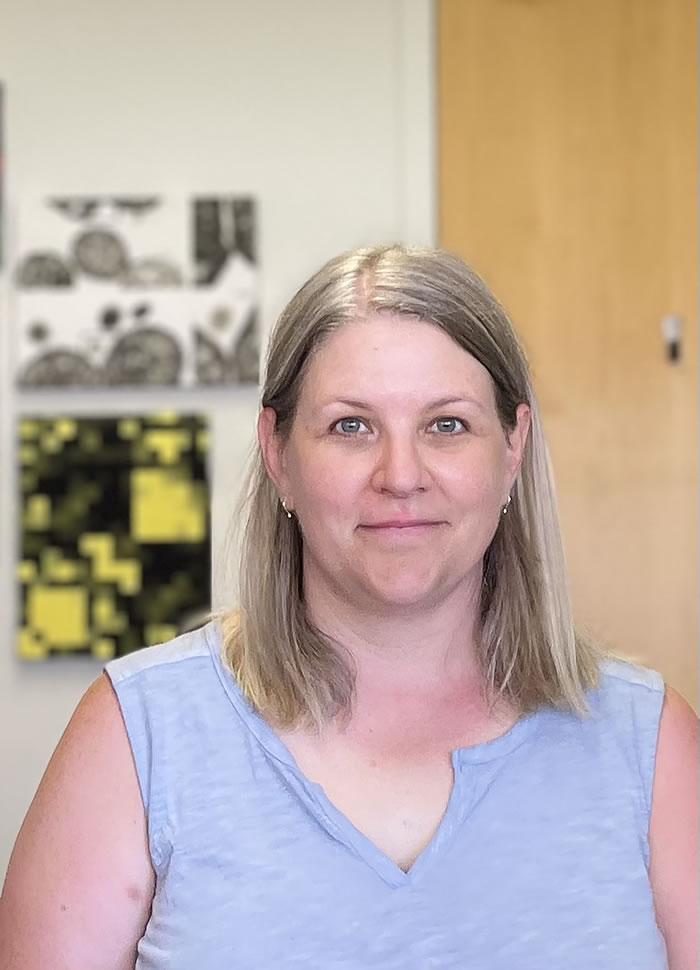
Several patients with congenital myopathy and ataxia were recently reported to have mutations in MSTO1. MSTO1 patient fibroblasts possess shorter mitochondria than cells from healthy individuals and also have fewer copies of mitochondrial genomes, indicating that the function of MSTO1 must include maintenance of mitochondrial function. Mitochondria are best known as the powerhouse of the cell due to their vital role in energy production, which relies of their genome. Mitochondria also contribute to other aspects of cellular physiology including responding to viral infections and regulating cell death. Mitochondria form a dynamic tubular network that constantly fuses, divides and moves. These dynamic behaviors are essential to maintain mitochondrial function. Virtually nothing is known about the function of MSTO1 in vertebrate cells. The goal of this proposal is to understand how MSTO1 contributes to mitochondrial function in healthy cells and to establish all the cellular pathways that are changed in disease. Dysfunctional and disconnected mitochondria are often associated with neurological diseases and it has been shown that increasing mitochondrial connectivity can improve organismal health. Therefore, we will also determine how increasing mitochondrial fusion impacts the mitochondrial and cellular defects caused by loss of MSTO1.
Grantee: Suzanne Hoppins, Ph.D.
Grant type: Research Grant
Award total: $299,973.00
Institution: University of Washington
Country: United States
Grantee: Chad Heatwole, M.D.
Funded: 9/1/2023 - 8/31/2026
Grant Type: Research Grant
Disease(s): Duchenne muscular dystrophy (DMD)

The Duchenne Muscular Dystrophy-Health Indices are novel, disease-specific patient and caregiver-reported outcome measures that were previously designed for use in Duchenne Muscular Dystrophy (DMD) clinical trials to track clinically meaningful changes in health in response to therapeutic intervention. The goal of this research is to implement the DMD-Health Indices in a longitudinal study to better understand how symptomatic burden changes over time, identify factors associated with faster or slower disease progression in DMD, and further optimize existing outcome measures for use in future therapeutic trials. Individuals with DMD will complete demographic questions, the Duchenne Muscular Dystrophy-Health Index, the Pediatric Quality of Life Inventory (PedsQL) DMD module (patient-reported), an instrument preference survey, and a global impression of change survey at baseline and 6, 12, 18, and 24 months. Caregivers of individuals with DMD will complete demographic questions, the Duchenne Muscular Dystrophy Caregiver Reported-Health Index, the PedsQL DMD module (caregiver-reported), an instrument preference survey, and a global impression of change survey at baseline and 6, 12, 18, and 24 months. This research will track patient and caregiver-reported disease burden over time, determine participant preferences with using the various instruments, identify high-risk patients, and optimize the DMD-Health Indices to facilitate future therapeutic trials for DMD patients.
Digital Object Identifier (DOI)
Grantee: Chad Heatwole, M.D.
Grant type: Research Grant
Award total: $299,800.00
Institution: University of Rochester
Country: United States
Grantee: Alyssa Coyne, PhD
Funded: 9/1/2023 - 8/31/2026
Grant Type: Research Grant
Disease(s): ALS (amyotrophic lateral sclerosis)

Maintenance of the protein complexes called nuclear pore complexes (NPCs) that control communication between the nuclear and cytoplasmic compartments of cells is essential for proper neuronal function and survival. Recent work has demonstrated that defects in a nuclear surveillance pathway initiate damage to these cellular communication channels as an early and significant event in sporadic and familial forms of Lou Gehrig’s disease or Amyotrophic Lateral Sclerosis (ALS). Critically, this damage cascade contributes to common pathological hallmarks of ALS such as altered function and mislocalization of specific proteins. Cumulatively, this NPC injury cascade can lead to impaired neuronal survival in ALS pathogenesis. This proposal will examine the contribution of proteins that comprise the fundamental nuclear surveillance pathway to these NPC injury cascades and therefore illuminate potential therapeutic targets and strategies for ALS and perhaps related neurodegenerative diseases.
Grantee: Alyssa Coyne, PhD
Grant type: Research Grant
Award total: $300,000.00
Institution: Johns Hopkins University School of Medicine
Country: United States
Grantee: Steve Cannon, MD, PhD
Funded: 9/1/2023 - 8/31/2026
Grant Type: Research Grant
Disease(s): Paramyotonia congenita

Periodic paralysis is a rare inherited disorder of muscle in which affected individuals have recurring transient episodes of weakness that may later progress to permanent muscle weakness. While life expectancy is normal in periodic paralysis, the transient attacks lasting hours to days severely impair quality of life and the permanent weakness may cause loss of ambulation. Interventions to reduce the frequency and severity of paralytic attacks have limited effectiveness. Avoidance of trigger factors (stress, strenuous exercise, cold environments, changes in blood potassium) helps somewhat, and medical management with carbonic anhydrase inhibitors has only modest response rates (50%) with adverse side effects such as kidney stones. Moreover, none of these interventions has been shown to reduce the risk of permanent muscle weakness. This project will develop more effective and durable treatments for periodic paralysis by using gene editing technologies that act directly on the primary cause of disease. We will establish a pre-clinical platform testing the safety and effectiveness of genetic tools (CRISPR) to either remove or to correct the mutation in our mouse models of periodic paralysis. Preliminary data show this approach reduces the susceptibility to attacks of weakness and may possibly prevent the late onset permanent weakness.
Grantee: Steve Cannon, MD, PhD
Grant type: Research Grant
Award total: $299,991.00
Institution: The Regents of the University of California, Los Angeles
Country: United States
Grantee: Antoni Barrientos, Ph.D
Funded: 9/1/2023 - 8/31/2026
Grant Type: Research Grant
Disease(s): Mitochondrial myopathies

Leigh syndrome is a rare inherited neurometabolic disorder due to defects in the mitochondrion, the powerhouse of the cell, that affects the central nervous system. Typically, this disorder begins in infants soon after birth, although a few juvenile-onset cases exist. Genetically heterogeneous, the disease can be caused by mutations in nuclear genes encoding proteins required for mitochondrial DNA expression. These proteins, such as LRPPRC, TACO1, and FASTKD5, have in common that they bind to the mitochondrial mRNAs to promote their stability, processing, or translation. Because mRNA binding proteins regulate the folding of mRNAs, and mRNA structure determines their function, we hypothesize that the Leigh syndrome proteins stabilize, disrupt, or require specific mitochondrial mRNA folds to act and promote mitochondrial gene expression. Here, we will test this hypothesis in fibroblasts from patients and human cell lines knockout for LRPPRC, TACO1, or FASTKD5. We expect to describe how mRNA folding and processing function in mitochondria and how they cause or contribute to mitochondrial disease.
Grantee: Antoni Barrientos, Ph.D
Grant type: Research Grant
Award total: $300,000.00
Institution: Miller School of Medicine of the University of Miami
Country: United States















